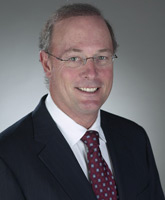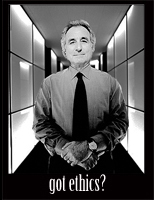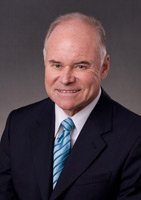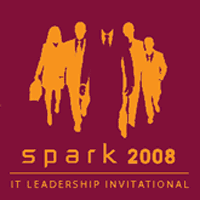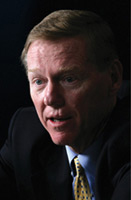
Executive of the Year: Alan Mullaly, Ford Motor Company
Alan Mulally, president and chief executive officer of Ford Motor Company, was honored recently as Executive of the Year by the Dean’s Council of 100, a group of prominent business executives who advise the W. P. Carey School of Business. In presenting the award, W. P. Carey School Dean Robert Mittelstaedt noted Mulally’s exceptional leadership in turning Ford around without requesting government bailout money. Here is Mulally’s speech and the question period that followed.


